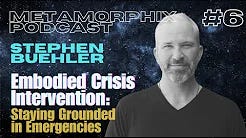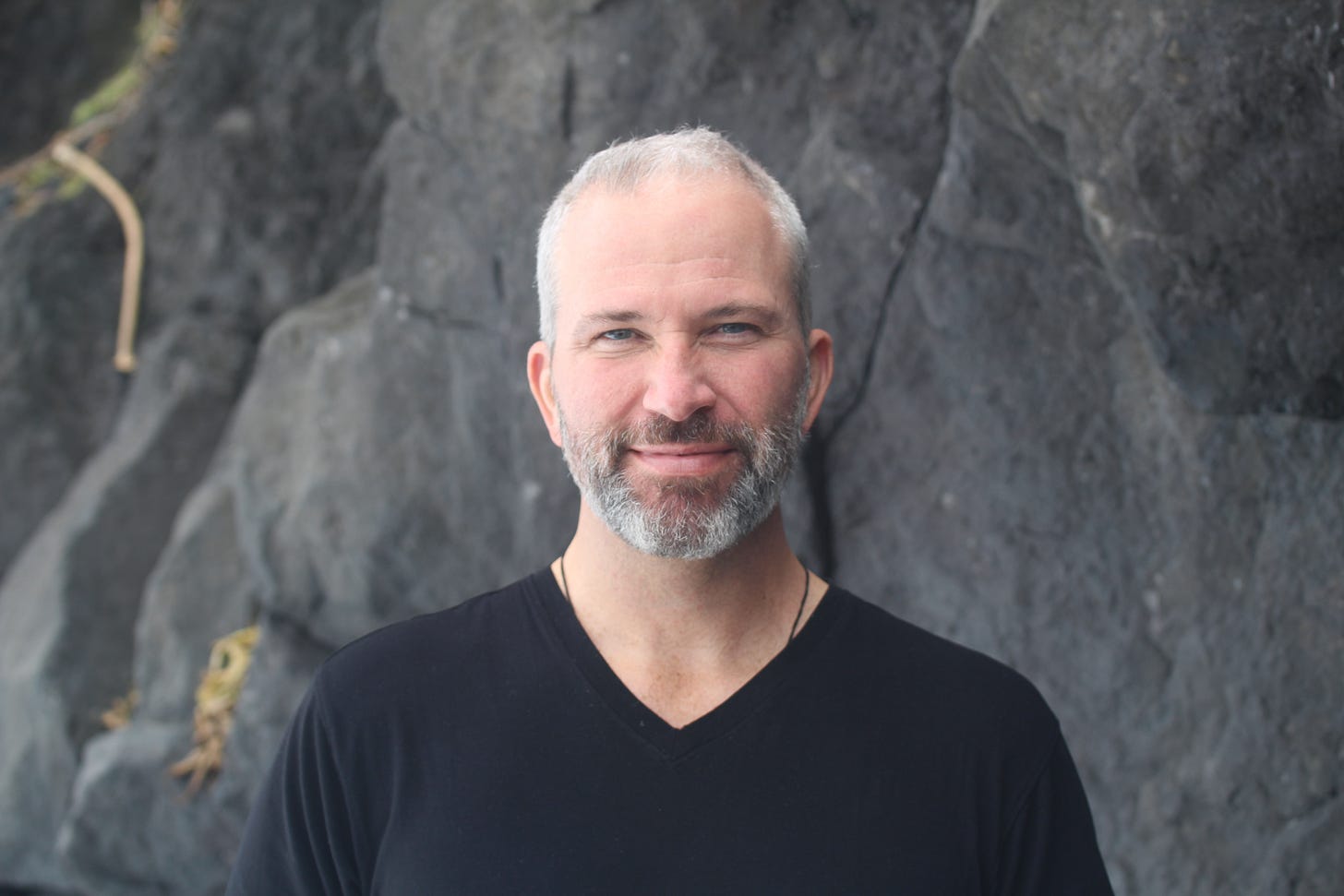The Role of Embodiment in Trauma and Crisis Recovery #interview
This article extracts key takeaways from my recent podcast interview, highlighting the importance of embodiment in trauma and crisis recovery. It includes actionable insights and a simple embodiment
I was recently invited to join the Metamorphix Podcast, where I had the opportunity to discuss some of my personal journey into becoming a psychotherapist. The conversation delved into the experiences that shaped my understanding of embodiment, as well as my work in crisis and disaster response. It was a meaningful exchange that allowed me to reflect on how these experiences have influenced my approach to therapy and consulting, particularly in high-pressure environments.
Some Points on Cultivating Embodiment:
Embodiment as a Natural Process: Cultivating embodiment isn’t about striving for a specific state but recognizing and engaging the natural flow of experience: bodily sensations, emotions, thoughts, action.
Importance of Enjoyment: Cultivating embodiment accelerates through ease and enjoyment, noticing how simple experiences can be fulfilling.
Granularity of Experience: Awareness of subtle, moment-to-moment physical experiences allows for greater emotional and psychological insight.
Context Matters: How people experience and interpret bodily sensations is influenced by the context they are in. Environment propels embodiment.
Differentiation from Pure Sensation: Embodiment goes beyond just noticing body sensations; it involves (physically) feeling one’s behavioral, relational, emotional and psychological patterns.
Self-Compassion in Embodiment: I advocate for a gentle, non-pressured approach to embodiment—it's about exploring and enjoying your body rather than forcing change or improvement.
A Simple Embodiment Practice:
I encourage integrating embodiment into daily life by noticing and savoring ordinary moments, such as feeling the warmth of the sun or the texture of clothing. This practice helps deepen your connection with the present and enriches your emotional experience without needing to set aside special time or effort. Just let it happen by softly “inviting” yourself to notice more. Don’t approach this as a task.
FULL PODCAST: Embodiment, Trauma & Crisis Intervention w/ Stephen Buehler
Metamorphix Podcast: In this episode, I'm joined by Stephen Buehler, a seasoned psychotherapist and founder of Emotive Energy, with over 20,000 hours of experience in healthcare wellness and crisis management. With 25 years of study and practice in psychology, Stephen has a invaluable understanding of emotional dynamics in high-pressure environments. He has led recovery efforts during major crises like the Northern California wildfires, floods, and the COVID-19 pandemic. Stephen's work focuses on systemic workplace issues such as burnout, bullying, and moral injury. We discuss embodiment, trauma, and stress, emphasizing the significance of embodiment, being present in the moment, and the role of sensate experience in constructing narrative and our sense of self. We explore the intricacies of working with individuals in crisis, the challenges of offering support in acute situations, and the pervasive issue of burnout in high-intensity healthcare settings.
Video Chapters:
00:00:00 - Intro
00:03:00 - Stephen’s Background
00:12:47 - What is Embodiment?
00:30:24 - Body as Architecture of Self
00:33:08 - Trauma
00:37:40 - Finding Sanity in Body
00:46:50 - Emergency Somatic Intervention
00:55:49 - Care Professional Burnout
The emotive.energy Substack offers posts, notes and podcasts that focus on embodiment theory, practice & application—bridging neuroscience, somatics, psychology and systems thinking for practical use in work and life.
emotive.energy is a research-driven, embodiment-based co-op that consults with leaders, teams and organizations to hone the skills needed in the chaotic modern world. We help people employ and expand their emotional agility, while navigating pitfalls from organizational dysfunction and burnout.
Stephen Buehler, MA, MFT is a psychotherapist, consultant, and crisis response expert with 30+ years of experience across healthcare, mental health, nonprofits, Fortune 500 high-pressure consulting, and creative and sales-driven cultures. As a founding member of emotive.energy, Stephen supports leaders, teams, and organizations in building real emotional agility, responding skillfully to disruption, addressing burnout, and realigning around purpose and authentic shared values. Stephen also hosts the emotive.energy podcast, where dancers, scientists, doctors, clowns, coaches, athletes, and everyday people explore how emotion and impulse shape the way we feel, live, work, and relate.
20,000+ hours of consultation with healthcare leaders, teams and providers on team wellness, collaboration, workplace bullying, community disasters and organizational crisis
20+ years providing psychotherapy to individuals, couples, groups, families; expert in disaster mental health & crisis response
300+ critical incidents and community disasters, leading just-in-time emotional support and follow-up care for affected leaders, doctors, nurses and teams
25+ years of engaged development in embodied, relational, and experiential forms of counseling psychology— with deep focus and passion for Gestalt Psychotherapy, Formative Psychology®, family systems theory, play therapy and psychodynamic thought
Lifelong immersion in athletics, yoga, movement, and somatic practices—including lived experience with degenerative disease and chronic pain—integrating body awareness at both gross and subtle levels





